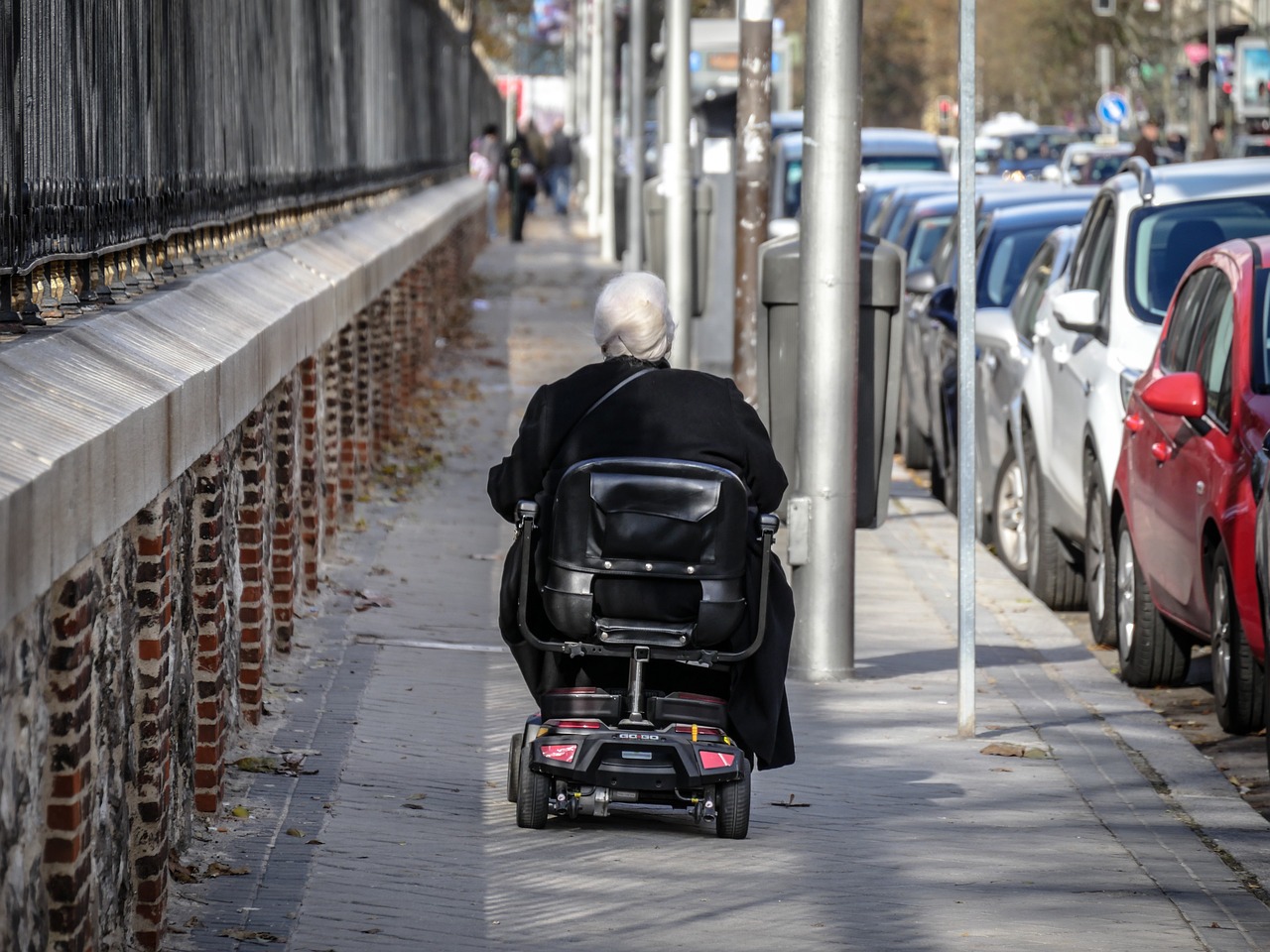Inclusive Spaces, Inclusive Communities: Why Handicap Parking Matters More Than You Think

Handicap parking is not just about convenience; it’s about ensuring equitable access to essential services and amenities. In this blog, we’re looking at the importance of handicap parking, the benefits of inclusive parking policies, and the impact they have on creating truly inclusive communities. From understanding disability parking needs to advocating for better enforcement and regulations, let’s explore why handicap parking matters more than many realize.
Importance of Handicap Parking:
Handicap parking is vital for individuals with disabilities to access public spaces, businesses, and services independently. These designated spaces are strategically located near building entrances to reduce the distance individuals with mobility impairments need to travel. Without accessible parking, individuals with disabilities may face significant barriers to participation in community activities and experiences, contributing to feelings of exclusion and isolation.
Benefits of Inclusive Parking Policies:
The benefits of inclusive parking policies extend far beyond meeting regulatory requirements; they foster a more welcoming and accommodating environment for everyone. Communities can reap numerous benefits that enhance quality of life and promote social equity by prioritizing accessibility and inclusivity in parking facilities.
One of the key benefits of inclusive parking policies is improved accessibility for individuals with disabilities. With handicap parking spaces that have appropriate signage, width, and proximity to entrances, communities ensure that individuals with mobility impairments can access essential services, employment opportunities, and recreational facilities with greater ease and independence.
Inclusive parking policies contribute to the overall safety and well-being of all users. Accessible parking spaces are designed to minimize hazards and obstacles, reducing the risk of accidents and injuries for individuals with disabilities and other users. Additionally, well-lit and well-maintained parking facilities promote a sense of security and confidence among all visitors, encouraging greater utilization of community spaces.
Inclusive parking policies also foster a sense of social inclusion and cohesion within communities. Communities send a powerful message of acceptance and respect for individuals of all abilities through demonstrating a commitment to accessibility and diversity. Accessible parking spaces serve as symbols of inclusivity, fostering a culture of empathy and understanding among residents and visitors alike.
Inclusive parking policies also contribute to economic vitality and growth by expanding access to businesses and services for individuals with disabilities! Through providing accessible parking options, businesses can attract a broader customer base and enhance their reputation as inclusive and socially responsible entities.
Additionally, inclusive parking policies support workforce diversity and inclusion by ensuring that individuals with disabilities have equitable access to employment opportunities and workplace amenities.

Handicap Parking Accessibility:
Handicap parking accessibility is about more than just having designated spaces; it’s about ensuring that these spaces are usable and convenient for individuals with disabilities. This includes providing features such as curb cuts, access aisles, and ramp access to accommodate different mobility aids and assistive devices. Moreover, maintaining clear pathways free from obstacles and hazards is essential to ensure that individuals with disabilities can navigate parking areas safely and independently.
Creating Inclusive Communities:
Creating inclusive communities requires a holistic approach that addresses physical, social, and attitudinal barriers to participation. By prioritizing accessibility in parking facilities, communities can send a powerful message of inclusivity and respect for individuals with disabilities. Accessible parking is not just a legal requirement; it’s a reflection of our values as a society and our commitment to ensuring that everyone, regardless of ability, has the opportunity to fully engage in community life.
Disability Parking Rights:
Disability parking rights are protected under various laws and regulations, including the Americans with Disabilities Act (ADA) and state accessibility codes. These rights affirm the equal dignity and worth of individuals with disabilities and mandate reasonable accommodations to ensure their full participation in society. Access to designated handicap parking spaces is not a privilege but a fundamental right that must be upheld to promote equity and inclusion.
Handicap Parking Regulations:
Handicap parking regulations outline the requirements for creating accessible parking spaces and ensuring compliance with accessibility standards. These regulations specify the number of handicap parking spaces required based on the size and capacity of parking facilities, as well as the dimensions, signage, and access features of these spaces. Compliance with handicap parking regulations is essential for promoting accessibility and avoiding discrimination against individuals with disabilities.
ADA Compliant Parking Spaces:
ADA compliant parking spaces adhere to specific design standards outlined in the ADA Accessibility Guidelines. These guidelines dictate the dimensions, markings, and signage required for accessible parking spaces, as well as the access aisles and routes connecting them to building entrances. Ensuring that parking facilities are ADA compliant is essential for accommodating individuals with disabilities and promoting equal access to parking areas.
Improving Parking Accessibility:
Improving parking accessibility requires ongoing efforts to identify and address barriers faced by individuals with disabilities. This may include conducting accessibility audits of parking facilities, retrofitting existing spaces to meet current standards, and providing training to parking facility operators on disability etiquette and best practices. By investing in improvements to parking accessibility, communities can create more inclusive environments that welcome individuals of all abilities.

Ensuring Equal Access to Parking:
Ensuring equal access to parking involves more than just providing designated handicap parking spaces; it requires proactive measures to address systemic barriers and promote inclusivity. This may include providing accessible transportation options for individuals with disabilities, implementing universal design principles in parking facility planning and construction, and fostering a culture of respect and empathy towards individuals with disabilities.
Inclusive Parking Policies:
Inclusive parking policies encompass a range of measures aimed at promoting accessibility and inclusivity in parking facilities. These policies may include provisions for reserved handicap parking spaces, priority parking for individuals with disabilities, and accommodations for specialized vehicles such as wheelchair-accessible vans. By adopting inclusive parking policies, communities can create environments that are welcoming and accessible to individuals of all abilities.
Disability-Friendly Parking Facilities:
Disability-friendly parking facilities go beyond mere compliance with regulations to create spaces that are truly inclusive and accommodating to individuals with disabilities. These facilities may feature amenities such as accessible pathways, designated drop-off zones, and assistance services to facilitate seamless access for disabled individuals. By investing in disability-friendly parking facilities, communities can demonstrate their commitment to promoting equity and inclusion for all.
Advocating for Handicap Parking:
Advocating for handicap parking is essential for raising awareness about the importance of accessibility in parking facilities and mobilizing support for policy changes that promote inclusivity. This may involve collaborating with disability advocacy groups, engaging with local policymakers, and educating the public about the barriers faced by individuals with disabilities in accessing parking areas. By advocating for better enforcement, regulations, and infrastructure improvements, communities can ensure that handicap parking remains a priority in the quest for inclusivity.
Understanding Disability Parking Needs:
Understanding disability parking needs requires empathy, sensitivity, and a willingness to listen to the experiences of individuals with disabilities. Each person’s needs and preferences may vary based on their unique circumstances, mobility limitations, and assistive devices. By actively engaging with disabled individuals and soliciting their input, communities can gain valuable insights into how to design parking facilities that meet the diverse needs of all users.

Impact of Inclusive Spaces:
The impact of inclusive spaces extends far beyond the physical environment; it influences attitudes, behaviors, and social norms. By creating inclusive parking spaces, communities send a powerful message of acceptance and respect for individuals with disabilities, fostering a sense of belonging and empowerment. Inclusive spaces not only benefit individuals with disabilities but also enrich the lives of everyone who interacts with them, creating stronger, more cohesive communities.
Handicap Parking Enforcement:
Handicap parking enforcement is essential for ensuring compliance with handicap parking regulations and deterring abuse of designated spaces. This may involve conducting regular patrols of parking facilities, issuing citations for violations, and educating the public about the consequences of unauthorized parking in handicap spaces. Strengthening enforcement efforts sends a clear message that handicap parking violations will not be tolerated and underscores the importance of respecting the rights of individuals with disabilities.
Designated Handicap Parking Spots:
Designated handicap parking spots are reserved for individuals with disabilities who have valid handicap parking permits or license plates. These spots are typically located near building entrances and feature signage indicating their reserved status. Designated handicap parking spots ensure that individuals with disabilities have convenient access to essential services and amenities, reducing the barriers they face in daily life.
Addressing Parking Accessibility Issues:
Addressing parking accessibility issues requires a proactive approach that involves identifying barriers, implementing solutions, and monitoring progress. This may include conducting accessibility assessments of parking facilities, retrofitting existing spaces to meet current standards, and providing training to parking facility operators on disability etiquette and best practices. By addressing parking accessibility issues, communities can create environments that are welcoming and inclusive to individuals of all abilities.
Promoting Accessibility in Parking Areas:
Promoting accessibility in parking areas involves raising awareness about the importance of inclusive parking policies and advocating for policy changes that prioritize accessibility. This may include collaborating with disability advocacy groups, engaging with policymakers, and educating the public about the barriers faced by individuals with disabilities in accessing parking facilities. By promoting accessibility in parking areas, communities can create environments that are more equitable, inclusive, and welcoming to everyone.
Importance of Accessible Parking:
The importance of accessible parking cannot be overstated as it directly impacts the quality of life and autonomy of individuals with disabilities. Accessible parking spaces serve as lifelines, providing individuals with disabilities the opportunity to participate fully in social, economic, and recreational activities.
Without accessible parking, individuals with mobility impairments may face significant challenges and barriers to accessing essential services, employment opportunities, and recreational facilities.
Accessible parking is not just a matter of convenience — it is a matter of basic human rights and dignity. Providing designated handicap parking spaces with adequate width, signage, and proximity to entrances ensures that individuals with disabilities can navigate parking facilities safely and independently. Accessible parking also contributes to the overall inclusivity and diversity of communities, fostering a sense of belonging and acceptance among all members.
Accessible parking is also essential for promoting independence and autonomy among individuals with disabilities. By providing designated parking spaces that accommodate different mobility aids and assistive devices, communities empower individuals with disabilities to live their lives with greater freedom and confidence. Accessible parking is not just about creating physical spaces; it’s about creating opportunities for individuals with disabilities to thrive and participate fully in society.
Equity in Parking Facilities:
Equity in parking facilities involves ensuring that all individuals, regardless of their abilities or socio-economic status, have equitable access to parking spaces and amenities. This encompasses various aspects, including physical accessibility, affordability, and availability of parking options.
Equity in parking facilities requires addressing physical barriers that may prevent individuals with disabilities from accessing parking spaces. This includes providing designated handicap parking spots, accessible pathways, and curb cuts to accommodate mobility aids such as wheelchairs and walkers. Ensuring that parking facilities are well-lit, well-maintained, and free from hazards is also essential for promoting safety and inclusivity for all users.
Equity in parking facilities extends to addressing affordability concerns, particularly for low-income individuals and families. Implementing measures such as discounted parking rates for individuals with limited financial resources or offering subsidized parking programs can help mitigate financial burdens and ensure that parking remains accessible to everyone.
Promoting equity in parking facilities also involves diversifying parking options to accommodate different transportation needs and preferences. This may include providing bicycle racks, carpooling incentives, and designated pick-up and drop-off zones for rideshare services. By offering a range of parking options, communities can cater to the diverse needs of residents and visitors while promoting sustainability and reducing traffic congestion.
Achieving equity in parking facilities requires a comprehensive approach that addresses physical, financial, and logistical barriers to access.
***
Inclusive spaces begin with inclusive parking, and handicap parking plays a crucial role in creating communities that welcome individuals of all abilities. By prioritizing accessibility, advocating for policy changes, and promoting awareness, communities can ensure that handicap parking remains a priority in the quest for inclusivity.
The impact of inclusive spaces extends far beyond the physical environment, shaping attitudes, behaviors, and social norms to create stronger, more cohesive communities where everyone belongs.
Need more information on disabled parking in the US? From how to find a disability parking permit application in Georgia to handicap parking for hybrid cars in Oklahoma, we offer a useful bank of detailed topics on the Dr Handicap blog. Check it out today!